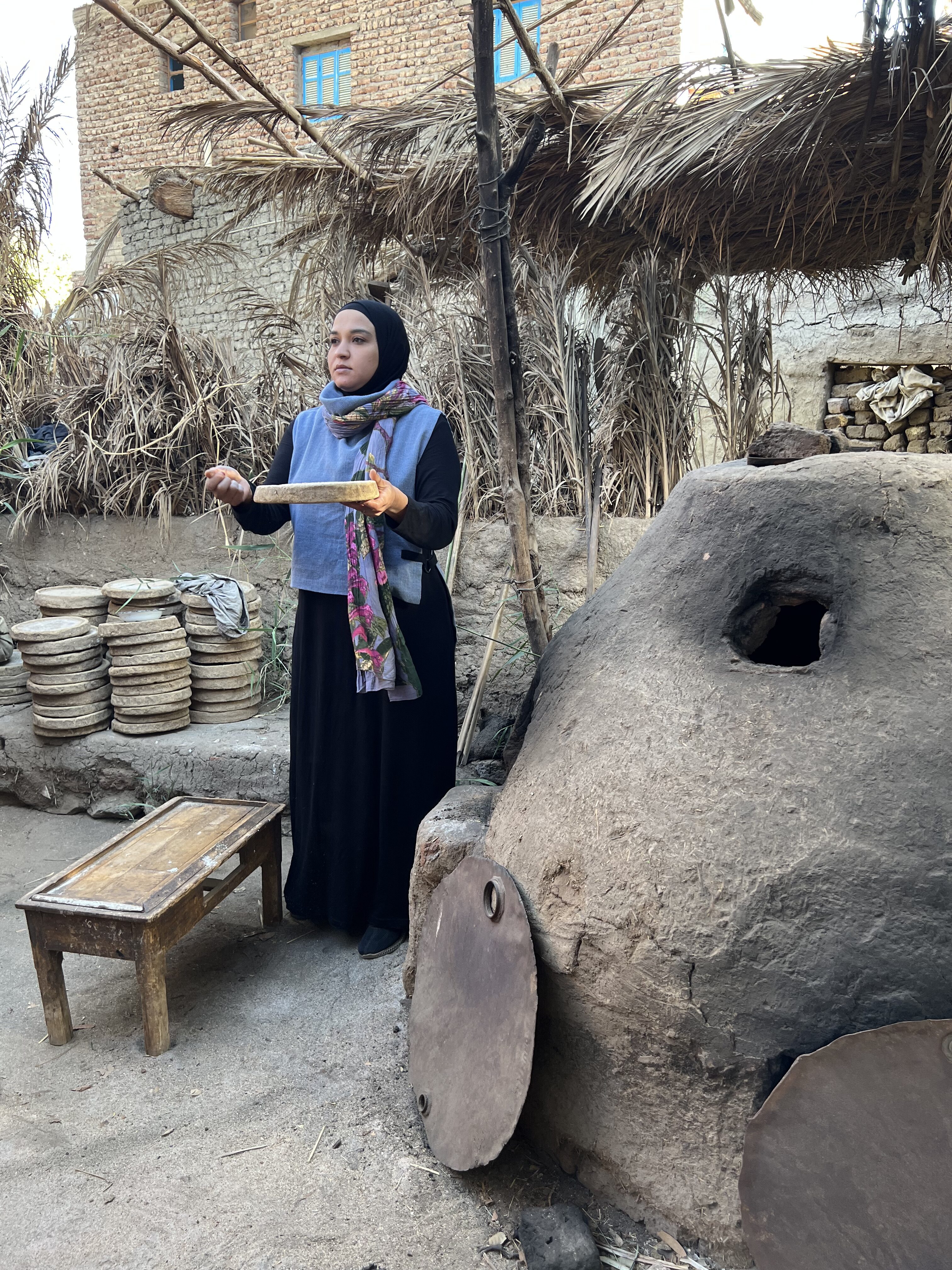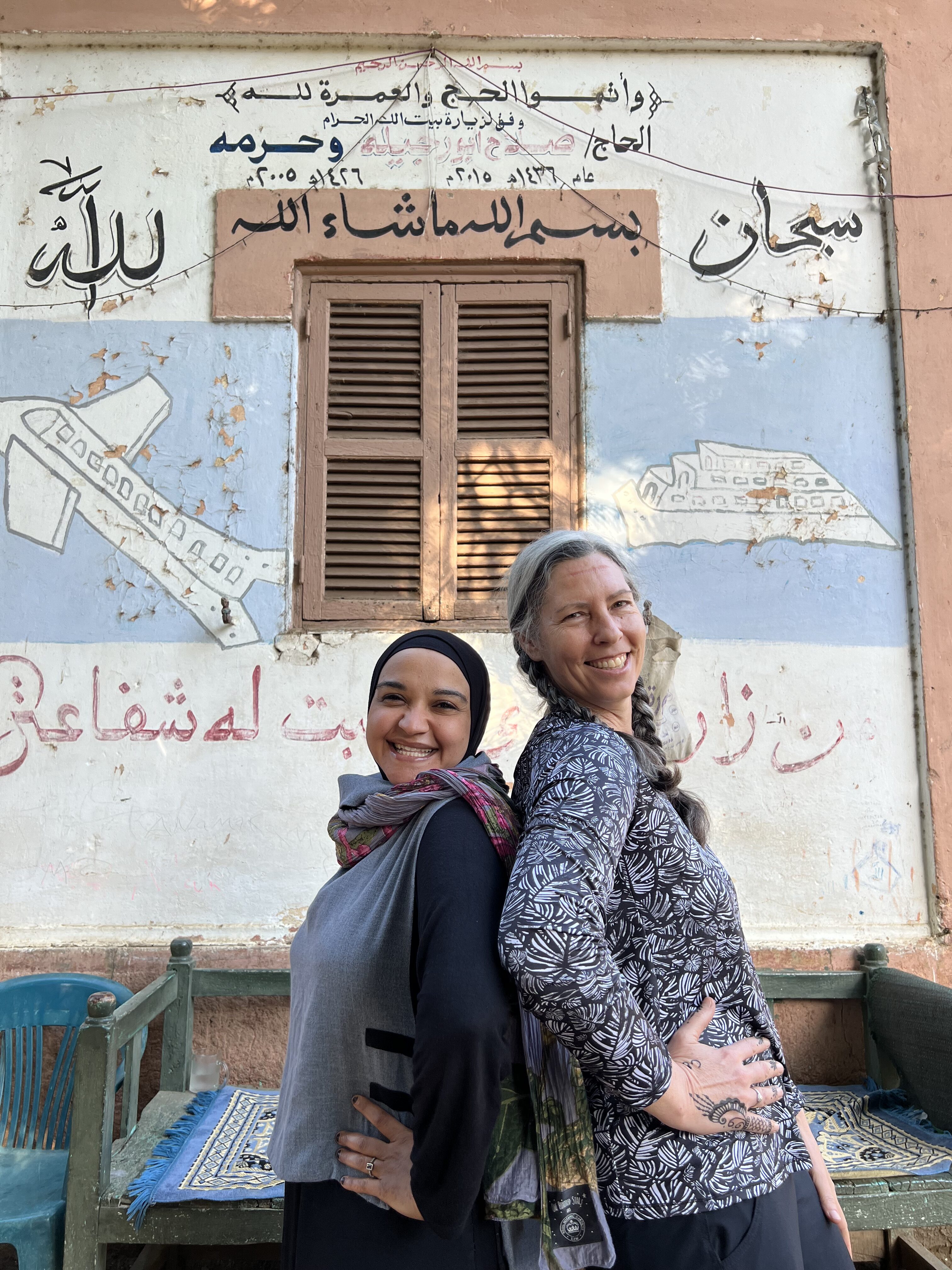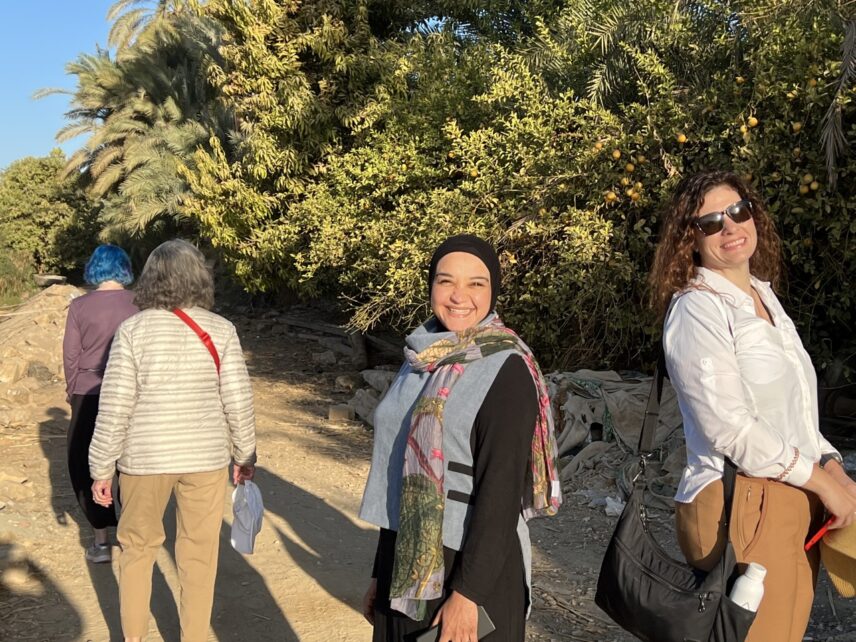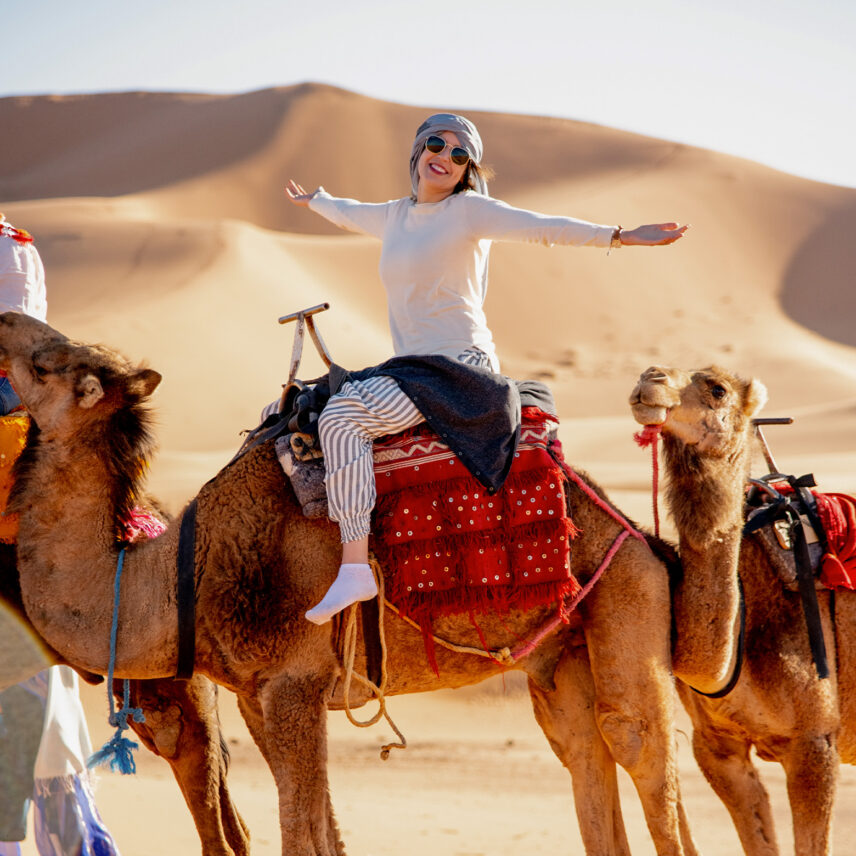Asmaa boards our dahabiya (boat) in the early morning, not long after the sun rises. We’re anchored just outside her small rural village of Hegz, south of Esna in Egypt, along the Nile river. She has come to tell us about life in her village of 5000 people, and particularly how tourism has impacted her and her family. We have an early start because she has another group coming at 9 am, and many days, she will visit with up to five groups of tourists. She keeps a tight schedule without ever seeming to rush.
She smiles sweetly when I hold up my phone and ask if I can take her picture, and nods her enthusiastic consent. She has become accustomed to having her picture taken and tells us, in her excellent English, that she has become a little bit famous on Instagram since she’s been welcoming tourists. Whenever a camera is pointed at her during our visit, she pauses and poses for us.
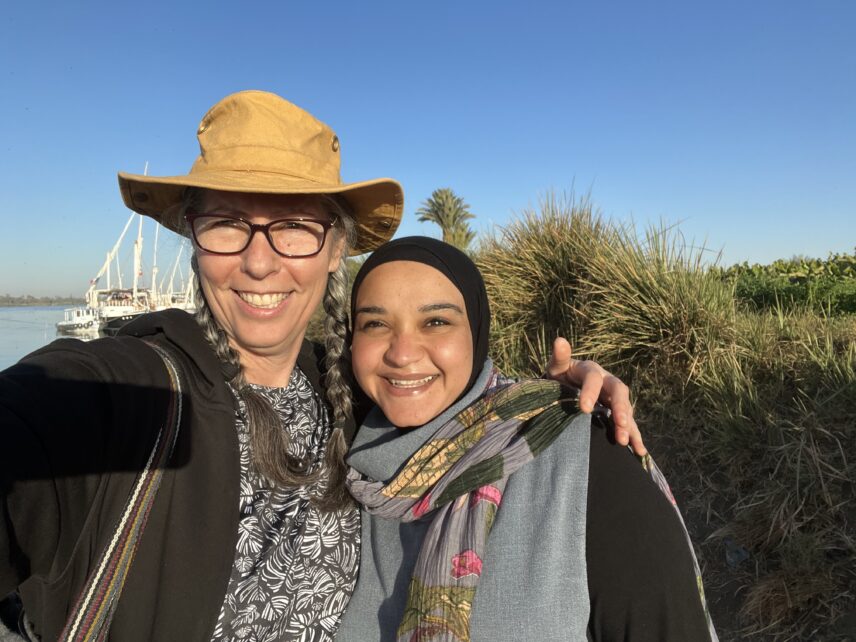
This is a relatively new business for her, she explains. She started showing tourists around the village before the Covid-19 pandemic, and picked it up again when travel and tourism resumed in 2021. She has been using the internet to polish her English skills, and is visibly pleased when we compliment her on her excellent pronunciation.
I ask her how doing this work has changed things for her and she explains that at first it was difficult because she had a lot of criticism and shame from her neighbours. But, over time they have come to accept her new business and she feels very proud of what she’s doing. She says that the neighbours are now jealous and perhaps even a little proud of her too. She describes herself as a strong and independent woman now, and says her personality has become stronger, and even the way she thinks has changed.
She shares that she’s 31 years old, married, and has a 7-year-old daughter. Her husband works in a resort on the Red Sea, so he’s gone for 6 weeks at a time. With a grin, she says, “it’s a good deal because he comes home in between for 10 days, so we have a honeymoon every six weeks!”
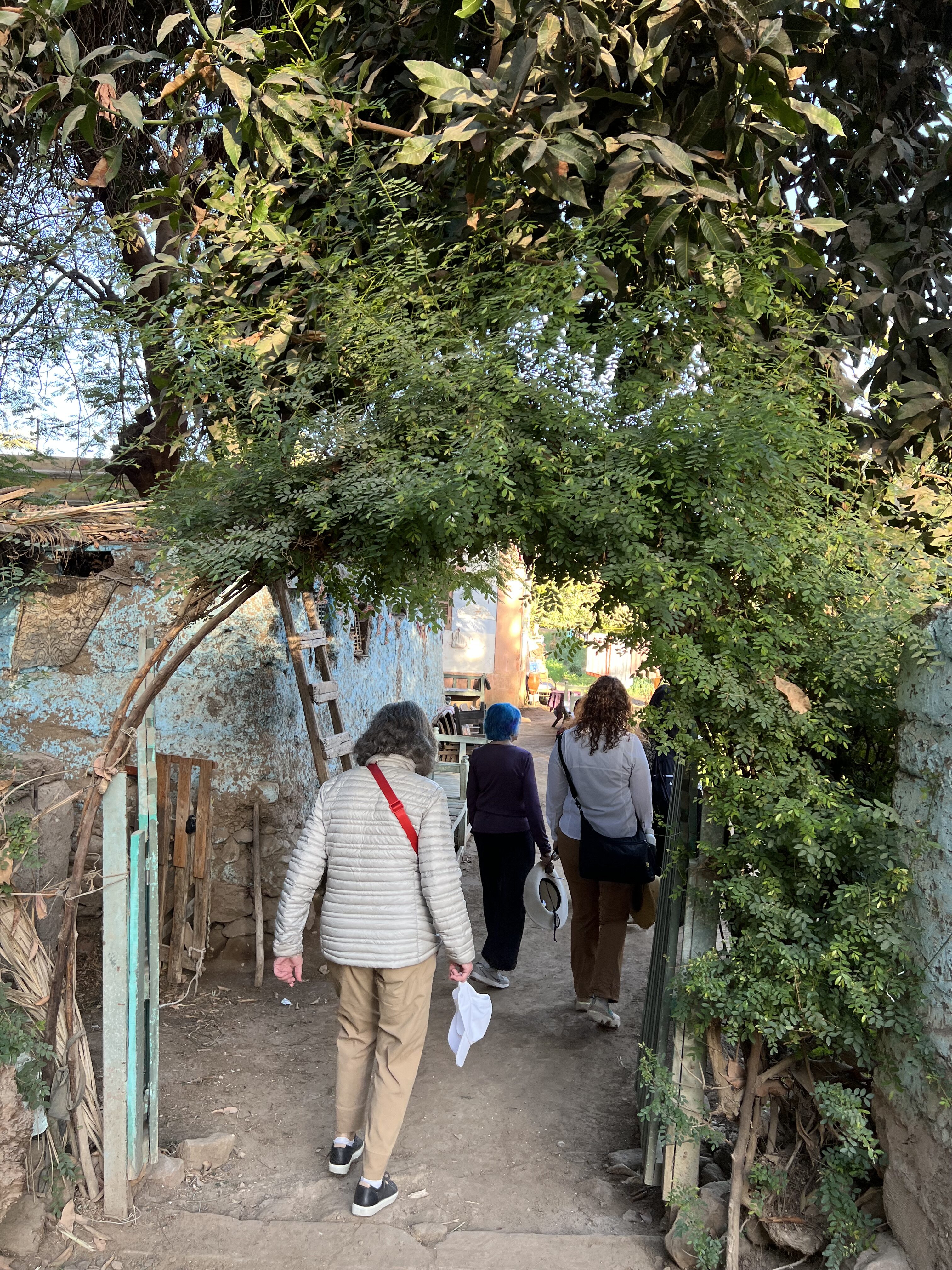
After a brief introduction on board, we walk the narrow gangplank onto the dusty trail, lined with lemon and mango trees, that follows the bank of the river. We go a few hundred meters and stop at an irrigation canal. Here, she explains that the canal was built in 1933 by the British, to help irrigate the crops on either side of the canal. She also shows us the water tank and filtration system that was installed in 1990, which pumps water from the river, filters and disinfects it before piping it to the houses in the village.
Turning right onto a wider path, we head away from the river and soon go through a narrow trellised arch into a large open courtyard in front of a tall plastered house. Behind the house are crops: garlic, figs, herbs and a variety of vegetables. Painted on the side of the house are a ship and an airplane and she explains that they depict the trips of her father and grandfather to Mecca, the most important pilgrimage site for Muslims, in Saudi Arabia, which is an unattainable dream for many. Mecca is also the name of her daughter.
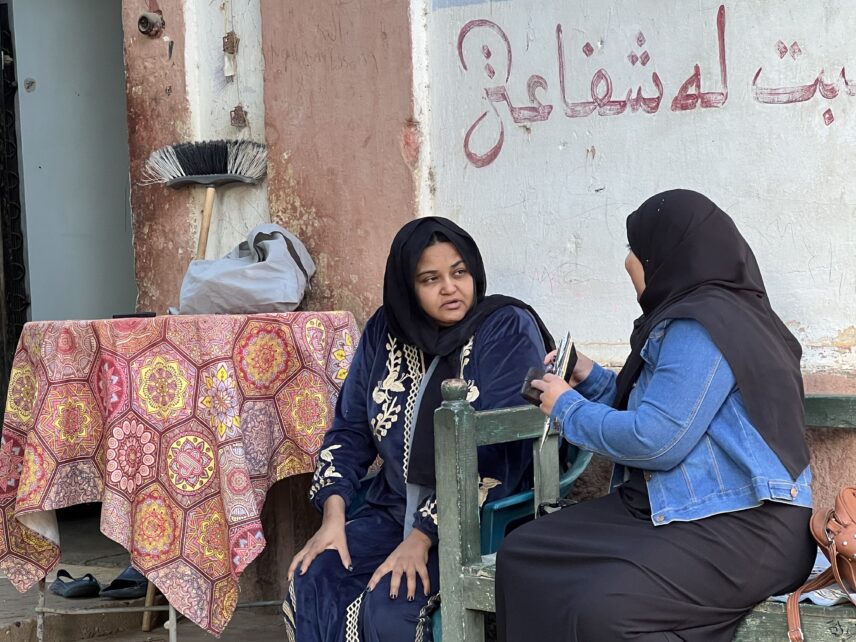
When I ask Asmaa how she spends her days, she says that after she gets her daughter ready and off to school, she comes to her family home, which is where we are visiting. She lives nearby with her daughter and husband. She spends her days tending the crops, as well as cooking and preparing food for the family, that is, when she’s not entertaining foreigners. Her father is diabetic and has lost part of his hand, and she helps to take care of him. Her mother suffered a stroke 6 years ago and still struggles to walk and talk. Asmaa and her sisters care for the family, and the quality of all their lives has vastly improved with the influx of money that Asmaa is able to bring in with her work with tourists.
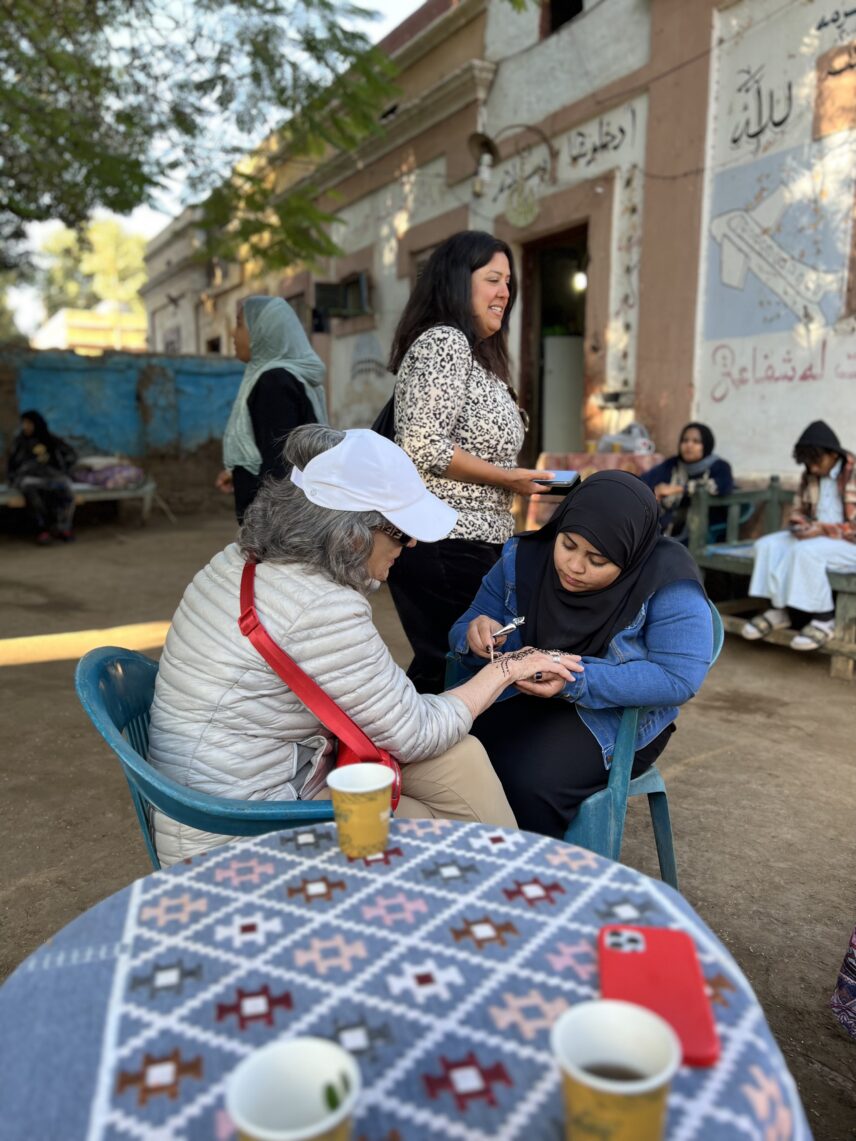
And, her entrepreneurship also benefits others in the village. Zainab, who lives nearby, comes by motorbike with her brother. She sits each of us down in a chair opposite her and takes our right hand, deftly drawing intricate designs with a tube of black henna. Asmaa explains that Zainab comes with her brother because her husband doesn’t want her to go out on her own, and Zainab indicates that this is because he loves her so much and wants to protect her.
We learn from our guide, Yasmine, that men are 100% responsible for the expenses of the household, and when a woman works outside the home, the money that she makes is hers to choose how to spend. Many women use their money to invest in gold and jewelry. Some choose to help with household expenses, but this isn’t always met with gratitude from their husbands, who may feel that it diminishes their role as provider, which they take very seriously.
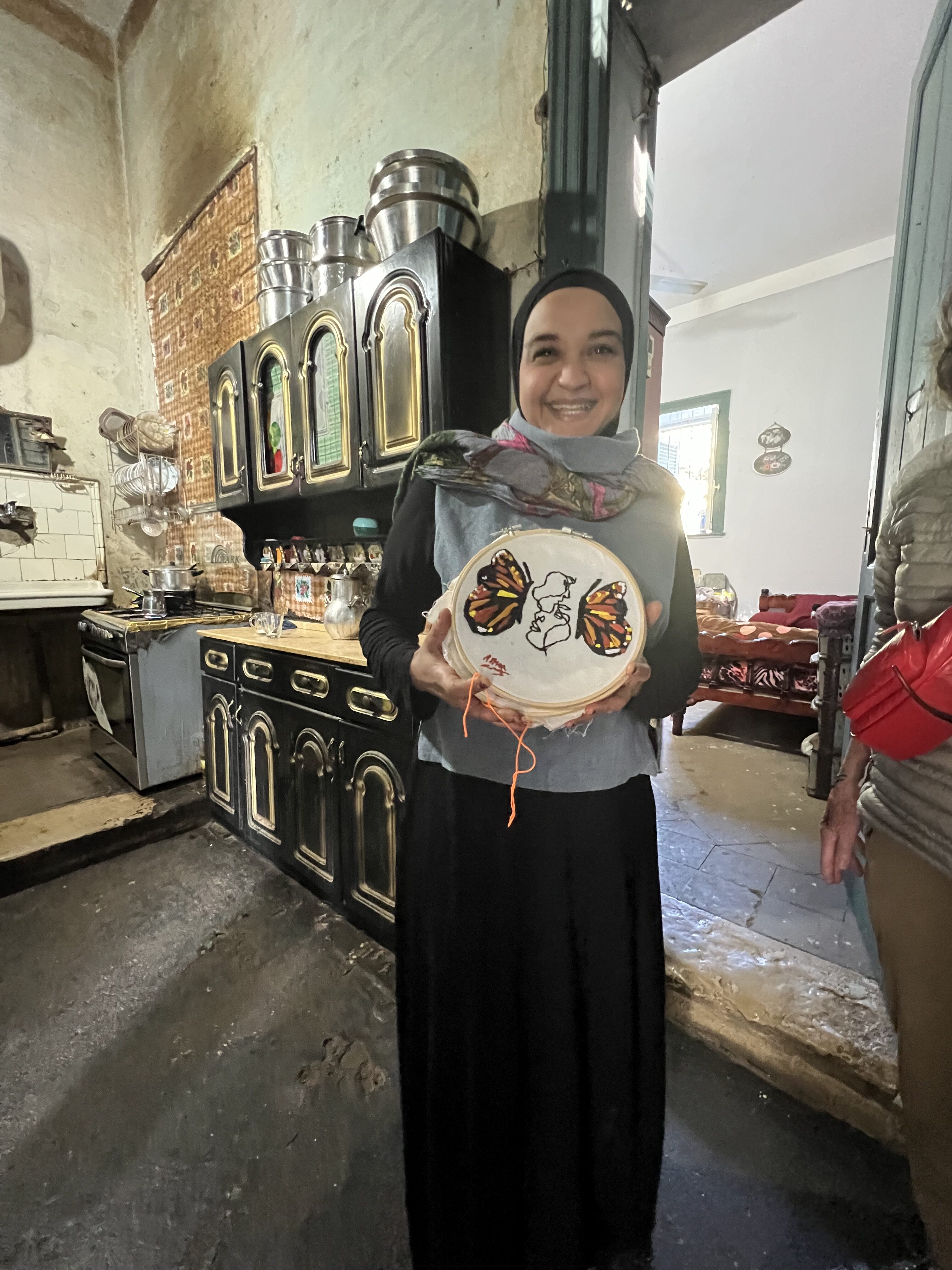
Yasmine also explains that most of the women who live in the cities have work outside their homes, where that number is much smaller in the rural areas, where there is little work to go around. So, for Asmaa, having an opportunity to make an income for herself is a big deal, and we can tell that she is immensely proud of her work and what it has meant for herself and her family. In her spare time, she likes to do needlepoint, and she is starting to sell her work as well.
